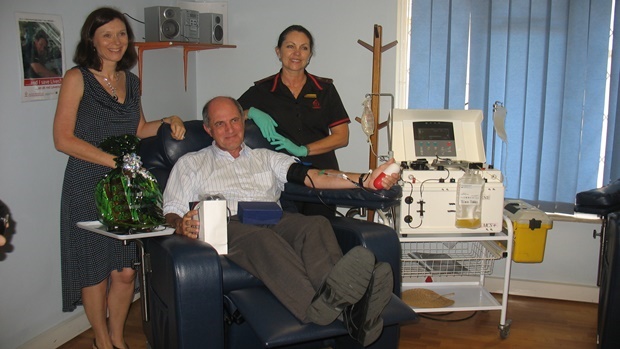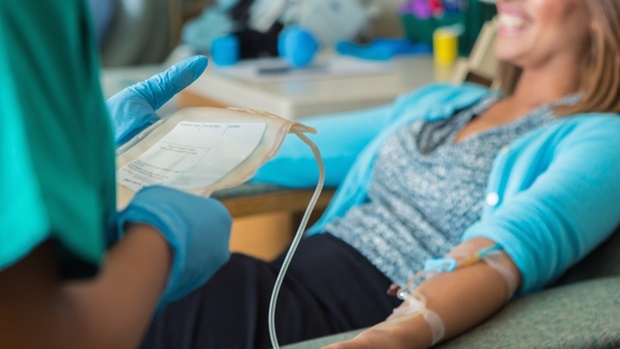
Meet Mike O'Neill and David Schreuder, two of South Africa's true heroes, men who have saved countless lives with their blood donations.
According to the South African National Blood Service (SANBS), O'Neill and Schreuder are two of the country's most prolific blood donors. Donations can come in three forms “whole blood”, “platelets” and “plasma donation”.
When it all began
For O'Neill (64), it started out as a one-time blood donation as a teenager, but developed into a lifelong commitment to helping others. He has donated an amazing 725 times, and donating blood was a way for him to make a difference.
"I donated my first unit of blood on my 18th birthday, which was the minimum age at the time. My older brother had donated a few times and I just thought that it would be a good way to make a difference to someone," he told Health24.
David Schreuder (66) is a regular blood donor who will be making his 674th donation this Friday in Loop Street, Pietermaritzburg. When asked about his experience the first time he donated blood, Schreuder said, "I was 18-years-old when I started giving blood, and it's a bit of a funny story.
"When I started work, I lived in a hostel in Durban. The night the blood bank came around, they said to me, 'Look, wouldn't you mind giving a donation of blood?' and they said that I could have a pint of beer if I gave blood. I said, 'My dear, listen, I don't drink beer, but I will give you a pint of blood.'"
Laughing at the recollection, Schreuder went on to explain that, in those days, it was "a pint for a pint".
Continuing to donate
For Schreuder and O'Neill, donating blood has become a part of who they are. According to Schreuder, "It's part of me; when you're sick and told you can't give blood, you actually feel wrong that you don't get to do it. I was off for six months from September last year until about February or March this year, and I felt lost when I didn't donate. It's just so much a part of me." He added, "Donating blood is so important; you're saving lives."
The same enthusiasm is felt by O'Neill. "Donating blood just became a good habit. When I joined the plasma donation panel, we used to make an appointment regularly after work every two weeks and meet with the same group of donors at the donor centre. Every time someone hit a milestone, they would bring in a plate of snacks, which would be consumed with enthusiasm while we sat in the chairs.
"Donating was not a negative thing at all, even though we were 'plugged in' for around an hour and a half every time. Even now, as a whole blood donor, I feel very comfortable going to the donor centre and am always made to feel welcome."
When asked about their routines before donating blood, O'Neill said, "I need to watch what medication I take, but my day is pretty normal. As long as I eat something before I donate and also ensure that I have had plenty of liquids, there are no problems. It is really important to be properly hydrated to ensure that your body can cope with the loss of fluid.
"I normally have breakfast as I go early in the morning, and that is a cup of coffee and a couple of slices of toast. I don't eat heavy," added Schreuder.
The WP Blood Transfusion Service (WPBTS) stresses that it is "important to eat a substantial meal three to four hours before heading off to the donation clinic, as well as increasing your fluid intake on the day, both before and after donating blood. Increasing your liquid intake helps to replace the blood volume that has been lost."
How you can donate today
O'Neill revealed that while some of his family members are unable to donate for health reasons, he still challenges others to do so. "Ironically, my wife and daughter have medical reasons why they can’t donate, but my son was quite reliable while living in South Africa.
"When I was teaching, I started up a donor clinic at the Marist school where I taught. I always challenged the learners to collectively chase my personal donations. Needless to say, they caught up within a few years. I occasionally bump in to past pupils at the regional donor clinic."
Image credits: iStock; Mike O'Neill




 Publications
Publications
 Partners
Partners












